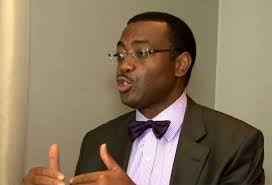The President of the African Development Bank (AfDB), Dr. Akinwumi Adesina, has dispelled insinuations that African debt crisis portends risk to the global economic system, particularly the continents creditors and donors.
The former Nigerian Minister of Agriculture and Rural Development disabused the international community’s concern over the disputable debt situation in African countries during an interview on the sidelines of the just ended Forum on China-Africa Cooperation (FOCAC) Summit held in Beijing, China.
Adesina told journalists after a discussion at the High-level Dialogue Between Chinese and African Leaders and Business Representatives, which was closed Tuesday as part of the FOCAC Summit with an assertive tone of authority that “Africa has absolutely no debt crisis.”
He clarified: “African countries are desperate for infrastructure. The population is rising, urbanization is there, and fiscal space is very small. They are taking on a lot more debt, but in the right way.”
Adesina noted that Africa had an overall debt-to-GDP ratio of 37 percent last year, which, albeit up from 22 percent in 2010, was within the reasonable range for low-income countries, stressing that the ratio is markedly lower than 100 percent or 150 percent of many higher-income countries and over 50 percent of emerging economies.
In the past few years, China has been providing money-starved African countries with loans that are required to build roads, power plants, and factories, as infrastructure is considered the precondition for African countries to propel industrialization and achieve prosperity.
However, some Western countries had raised the alarm that China was hoodwinking poor African nations into debt trap through its various interventions, through grants and loans, in many African countries’ infrastructure development projects.
For instance, head of the U.S. Overseas Private Investment Corporation (OPIC), Ray Washburne, was reported to have said recently that China was saddling poor nations with unsustainable debt.
According to him, the large-scale infrastructure projects run by the Chinese are not economically viable.
Similarly, the International Monetary Fund (IMF) Managing Director, Christine Lagarde, had last April cautioned China’s Belt and Road partners against considering the financing as “a free lunch”.
However, informed analysts on the African countries’ debt profiles maintained that Chinese investments in Africa would not add any debt burden to the continent but that rather, it will ease the burden in the long run.
They see the Chinese loans which are mainly dedicated to the infrastructure in Africa as having the potential of attracting more foreign direct investments (FDIs) into the continent in view of the positive multiplier effects of quality infrastructure hold for the economies, particularly in terms of the job creation and income generation dividends.






